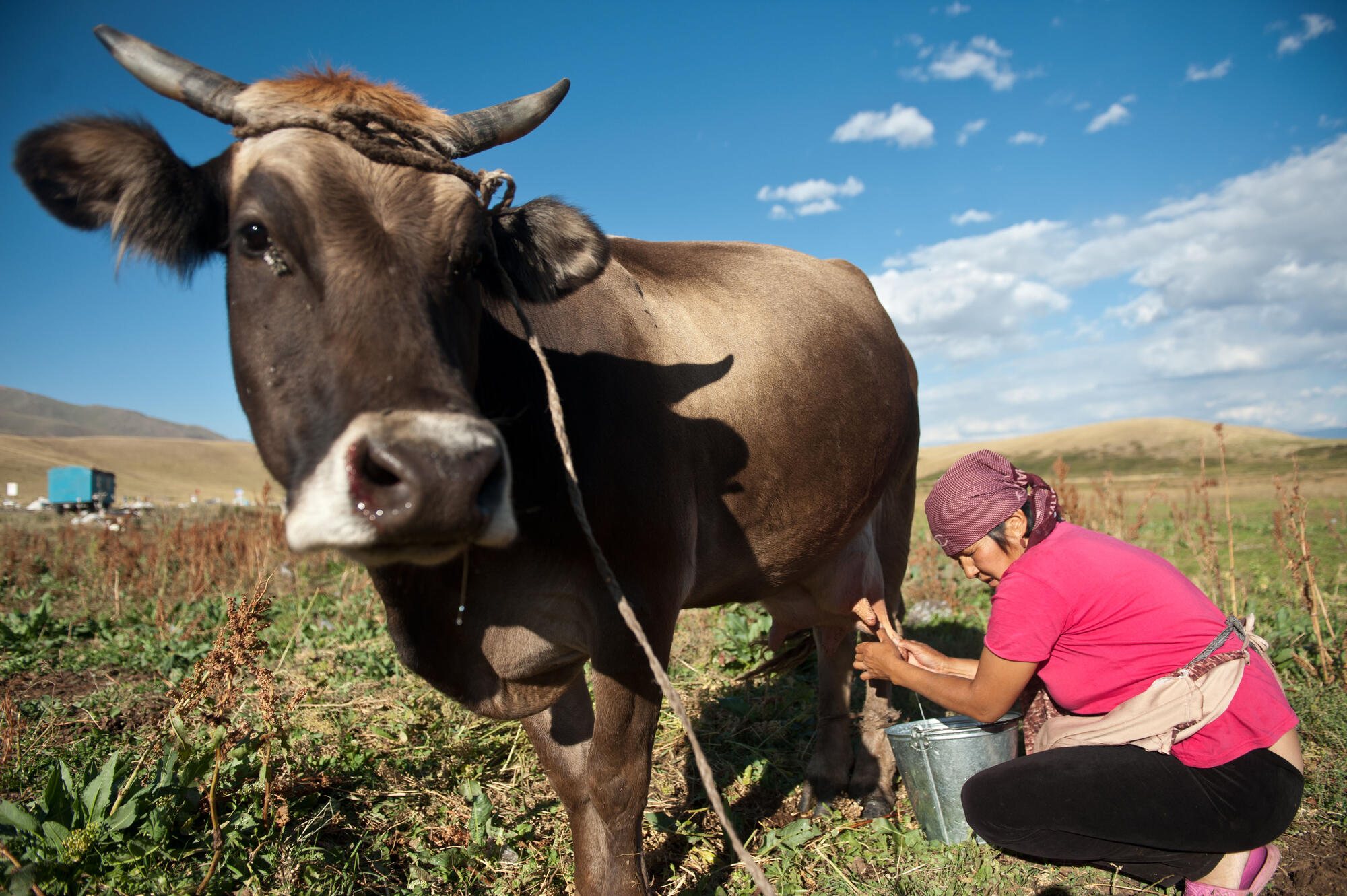One Health in action: FAO, WHO and WOAH train professionals across Europe
One Health is an integrated, unifying approach that aims to sustainably balance and optimize the health of humans, animals, plants, and ecosystems. To bolster this approach, FAO, the World Health Organization (WHO), and the World Organisation for Animal Health (WOAH) joined forces to bring together professionals from the animal health, human health, wildlife, and food safety sectors from all over Europe for a One Health online course.
Over 200 participants gained valuable skills
The tutored course was delivered by the three organizations through the FAO Virtual Learning Centre for Europe and Central Asia. Launched in 2021, the Virtual Learning Centre offers a vital platform for One Health professionals to access high-quality, online training in multiple languages.
“By going through the modules, I learnt the main principles of the One Health concept. Thanks to this course, I feel confident to initiate and continue discussions on the One Health approach.” course participant.
Before getting their certificates, participants had to follow interactive self-study modules (five compulsory and one optional) at their own pace over four weeks in February-March 2024. At the end of the course, 216 participants from 43 countries were fully trained and certified. Participants had been nominated by their countries through the FAO, WHO and WOAH channels.
Building capacity and fostering collaboration
Participants studied the concept of One Health, and the benefits, challenges, and practical examples of how it can be applied for managing health threats at the human-animal-environment interface. The overall aim is to develop national capacity for the implementation of the One Health approach by governments and to encourage interaction between people working in different areas.
A key focus of the course was the application of the One Health approach in risk analysis, particularly on the advantages of conducting Joint Risk Assessments at country level. Trainees participated in a case-study exercise about avian influenza to better understand when and how a Joint Risk Assessments can be beneficial for providing evidence-based advice for decision-makers on risk management and communication strategies.

Beyond acquiring knowledge, the course fostered valuable collaboration among participants with various backgrounds. Participants exchanged ideas and strengthened intersectoral and international networks. Successful country examples showcased during the course through a webinar provided participants with practical inspiration for implementing One Health strategies in their own contexts.
Setting new standards for VLC courses
Not only was the first course delivered with WHO and WOAH, it was also the first VLC course accredited by the Veterinary Continuing Education in Europe (VetCEE). The accreditation confirms that the course meets rigorous quality standards and supports the recognition of credits earned by completing the course in the national Continuous Professional Development systems for animal health professionals.
